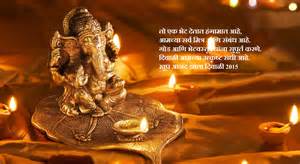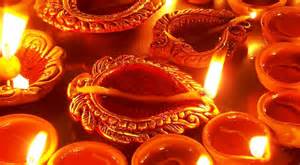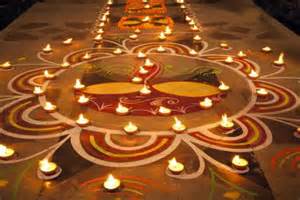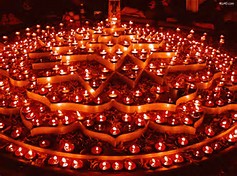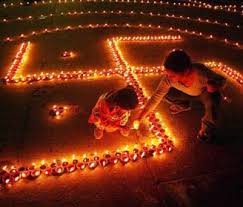Today begins the Festival of Diwali, the most important celebration in the Indian calendar and the beginning of the New Year. Diwali is the celebration of the victory of Good over Evil and the victory of Light over Darkness. Diwali is the colloquial term for the Sanskrut name Deepavali – which literally means a row of lights. That is why it is celebrated by lighting a row of lights in every house, every neighborhood, every city and now virtually every country. We wish our readers Happy Diwali on this auspicious day.
Growing up, Diwali began for us with the immortal Bhupali below. It was composed by the great poet Honaji Bala of the early 19th century. He is famous for lifting a common form of folk music into the respected music scene of Maharashtra. This also points to an often overlooked reality of Indian Society, that the important breakthroughs for India have usually come from the lower, poorer & ignored sections of society and hardly ever from the elites. This has been true culturally, socially and politically since the beginning of Indian culture. The elites of that day were successful in taking the life of Honaji Bala but his poetry, his message live to this day. This is the true meaning of the victory of Light over Darkness and of Good over Evil.
[embedyt] http://www.youtube.com/watch?v=LQWSzQcOTGs[/embedyt]
What does it mean to society or humankind when Evil is eradicated and Good is triumphant? It means the rise of Svasti on Earth:
सर्वेऽपि सुखिन: सन्तु; सर्वे सन्तु निरामयाः; सर्वे भद्राणि पश्यन्तु; मा कश्चित् दुक्खम् आप्नुयात्
“Let all humanity be happily content. Let all humanity be without ill-health. Let all humanity perceive the Noble. Let no one suffer grief or pain.”
Let this Diwali deliver Svasti to you and your families – स्वस्ति अस्तु भवतु
Send your feedback to editor@macroviewpoints.com Or @MacroViewpoints on Twitter
